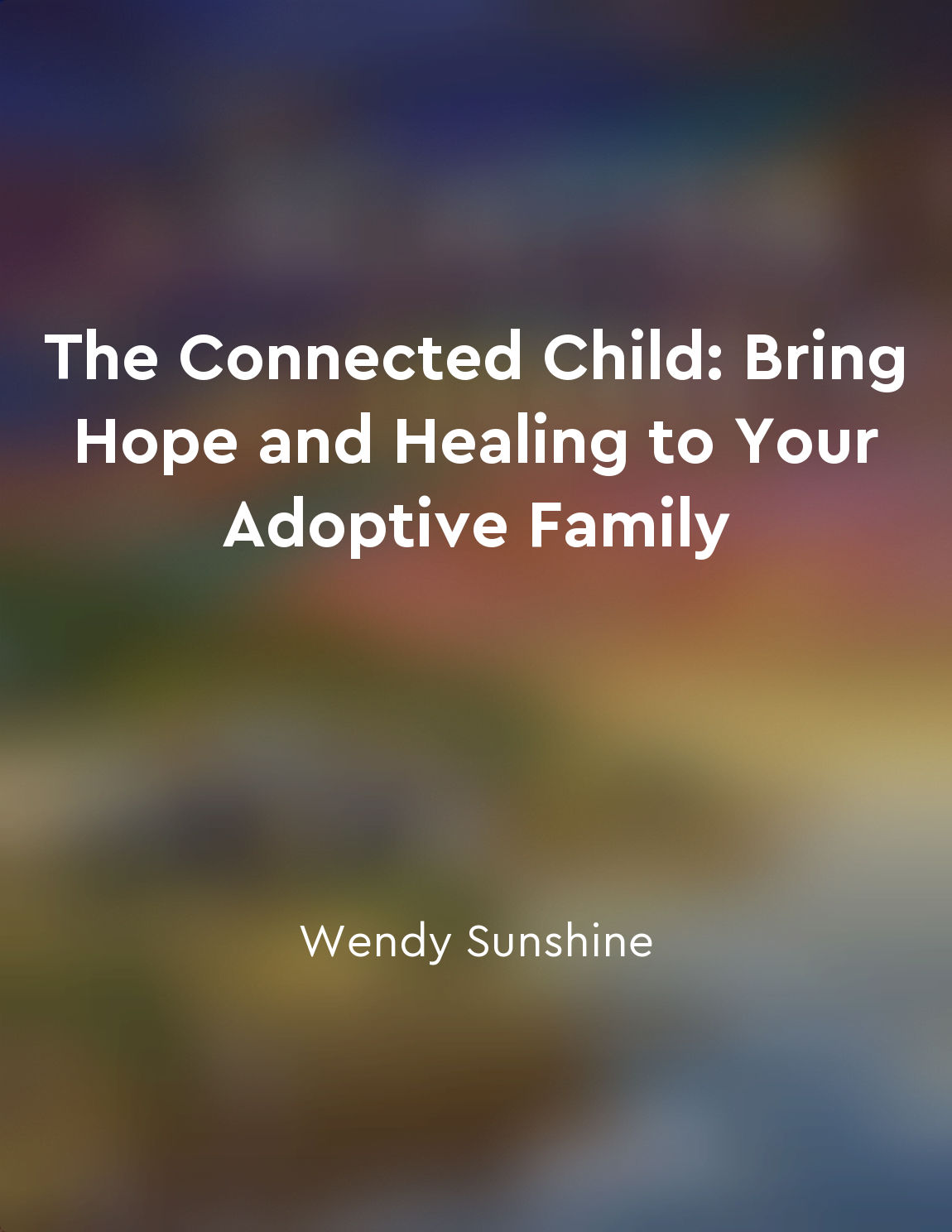Codependency can stem from dysfunctional family dynamics from "summary" of Codependency For Dummies by Darlene Lancer
Codependency often originates from dysfunctional family dynamics. These dynamics can be traced back to childhood experiences and relationships within the family. In dysfunctional families, there may be issues such as substance abuse, mental illness, or physical abuse that create an unstable environment for children to grow up in. These experiences can shape the way individuals view themselves and others, leading to codependent behaviors in their adult relationships. Children in dysfunctional families may have learned to prioritize the needs of others over their own, leading to a pattern of self-sacrifice and neglecting their own needs. This can result in a lack of boundaries and difficulty in asserting oneself in relationships. Additionally, children may have been taught to seek validation and approval from others in order to feel worthy, contributing to a pattern of seeking external validation in their adult relationships. Furthermore, individuals who grow up in dysfunctional families may have experienced inconsistent or unhealthy forms of love and affection. This can lead to a fear of abandonment and a constant need for reassurance in their relationships. They may struggle to develop a sense of self-worth independent of others' opinions, relying on external sources to define their value. The dynamics within dysfunctional families can also contribute to a lack of emotional regulation and coping mechanisms. Children may have internalized negative messages about themselves and developed maladaptive ways of coping with stress and conflict. This can manifest in codependent behaviors such as people-pleasing, seeking to control others, or avoiding conflict at all costs.- The impact of dysfunctional family dynamics on individuals can be profound and long-lasting. These experiences can shape the way individuals approach relationships and view themselves, leading to patterns of codependency that persist into adulthood. By understanding the root causes of codependency within the context of family dynamics, individuals can begin to unravel these patterns and work towards healthier, more fulfilling relationships.
Similar Posts
Kindness has a ripple effect
Kindness is like a pebble thrown into a pond, creating ripples that extend far beyond its initial impact. When we choose to be ...
Prioritizing communication in love
When you love someone, you have to make communication a priority. It's not just about saying "I love you" and leaving it at tha...

The struggles of addiction are prevalent in our society
The challenges of addiction are all around us. They seep into the fabric of our society, affecting families, communities, and i...
Communication is key to building strong family bonds
Communication within families is not just about talking or exchanging messages; it is the glue that holds family members togeth...
The book explores how unresolved conflicts can fuel animosity
The narrative delves into the intricate web of relationships within a family torn apart by deep-rooted conflicts that have rema...
Evolutionary explanations can help us understand a range of behaviors
Consider human aggression. You could focus solely on the proximate explanations for why one person punches another in the face....

Find your optimal work environment for peak performance
To do your best work, you need the right environment. Think about where you work now. Is it noisy, distracting, or uncomfortabl...
Darwin examines the evolution of humans
In the Descent of Man, Darwin posits that humans have evolved from a common ancestor with other primates. He delves into the in...
Use your enemies to further your own goals
Exploit the existence of enemies as a strategic tool in advancing your ambitions. Adversaries can inadvertently aid your cause ...

Children need to feel safe and loved
Children thrive when they feel secure and cherished. It is paramount for children to feel safe and loved in order for them to d...

